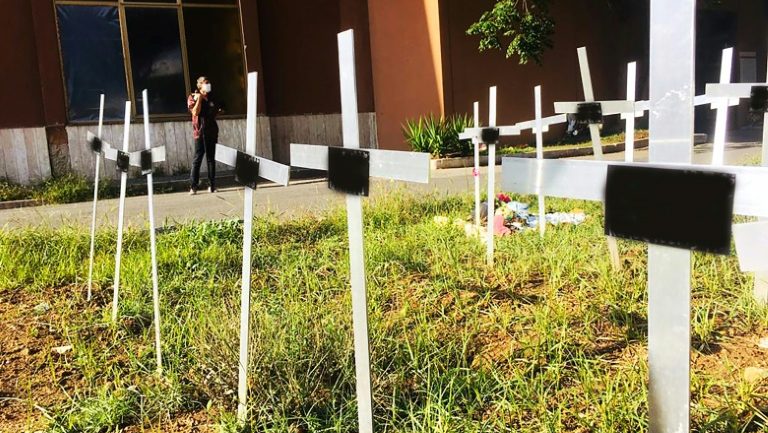
The scandal first came to light in September 2020 when it was discovered that the graves of aborted foetuses were buried in the Flaminio cemetery without the knowledge of the women involved, whose names appeared on crosses.
This provoked outrage from women’s rights associations and the women involved, who denounced a violation of their privacy.
Citing Italy’s ban on disseminating data on terminations of pregnancy, the
Personal Data Protection Authority decided to impose a fine of 176,000 euros on the city of Rome and an additional fine of 239,000 euros on the AMA, the public company responsible for managing the Italian capital’s cemeteries.
The watchdog body also issued a warning to Rome’s primary health insurance fund, for breaching the law on the protection of data relating to privacy, by sending the AMA the identity of women who had undergone an abortion.
It also suggested that the names of women receiving abortions should be in future masked or encrypted by the health authorities to avoid any repetition.
“We had to wait a long time, but today justice has been done for so many women and for all those who knew that these wrongs had been committed”, said Elisa Ercoli, president of the women’s rights association
Differenza Donna, quoted by the Italian news agency AGI.
The scandal erupted in 2020 when a woman who had had an abortion discovered her name on a cross at the cemetery and then posted it on Facebook, a message that soon went viral.
Similar practices were also discovered in a cemetery in the town of Brescia in the north of the country.
Abortion within the first 90 days of pregnancy has been legal in Italy since 1978, but the law allows for conscientious objectors among medical professionals.
AFP













